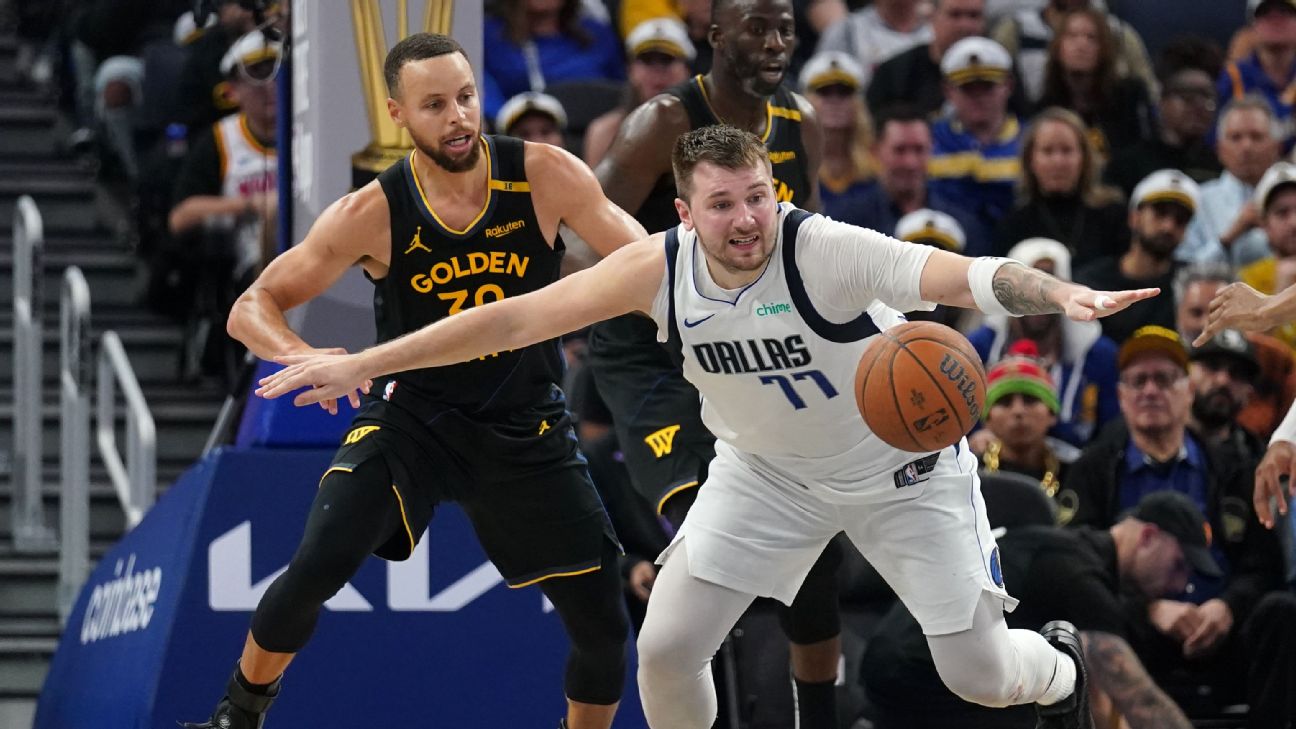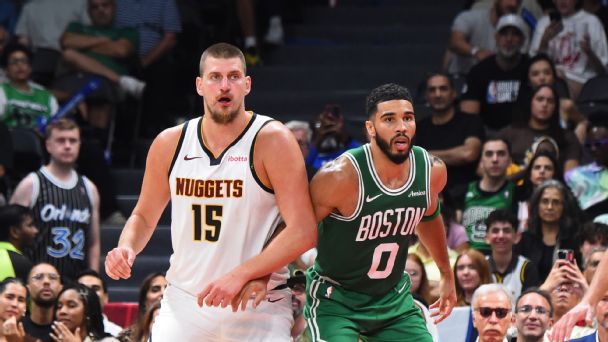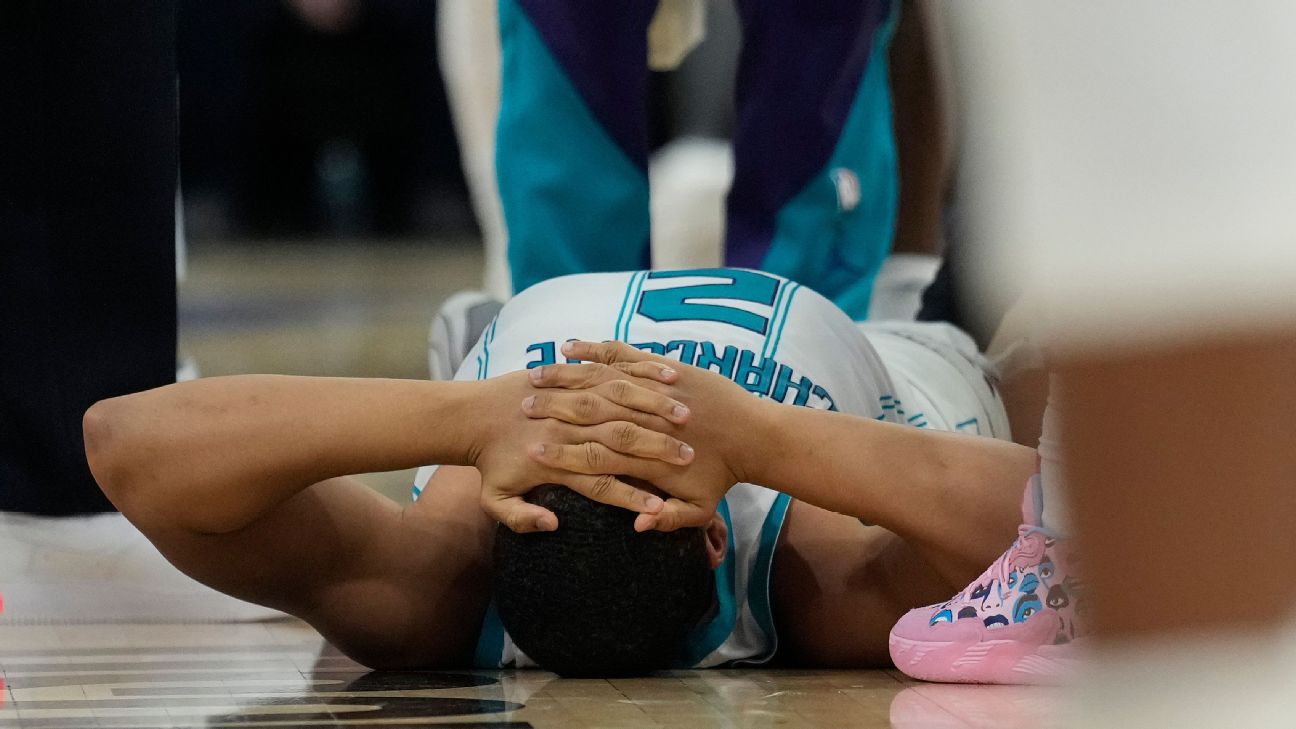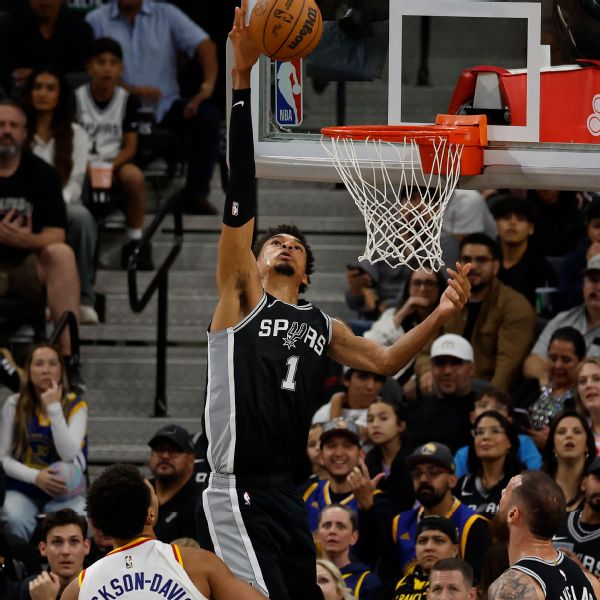With the NBA’s Western Conference continuing to dominate head-to-head matchups against the East (37-18 so far this season), it’s worth checking on how teams stack up on that side of the overall standings.
Not only is the West strong at the top, it boasts impressive depth for a second consecutive season. That means razor-thin margins could again separate the six teams that advance to the playoffs directly from some that miss the play-in tournament entirely. Nearly one month into the season, just a game in the standings separates those fates.
All season long, we’ll be keeping an eye on the West as teams battle for the postseason spots. Aside from the top two sides in the standings that have separated themselves (the Golden State Warriors and Oklahoma City Thunder) and the bottom four teams unlikely to make the playoffs, the differences are currently granular at best.
As a result, the second tier of playoff contenders still features seven teams bunched up together. That group combines last season’s other three playoff series winners (including the defending West champs, the Dallas Mavericks) with four up-and-comers off to strong starts. There’s also an additional tier of teams more likely headed to the play-in, as well as one team that still seems unclear.
Let’s go through the tiers, with teams sorted alphabetically within them.
Jump to a tier:
Current favorites
In the Playoff chase
Staring at the play-in
The one special case
Building for the future
? It has been Buddy Hield, who’s shooting a scorching 46% from 3-point range, but he has already started coming back to earth. Draymond Green’s playmaking and defense are still elite, but the Warriors’ lack of a second go-to scorer could keep them in the trade market.
![]() Oklahoma City Thunder (11-4)
Oklahoma City Thunder (11-4)
Why they’re here: Despite a two-game losing streak, the Thunder are tied atop the West with the conference’s best point differential (plus-10.7 per game). Shai Gilgeous-Alexander is playing at an MVP level, and Oklahoma City boasts the NBA’s stingiest defense. The only question is whether the Thunder belong in their own tier.
What needs work: Healthy centers. Chet Holmgren’s extended absence (at least two more months after suffering a hip fracture) is particularly poorly timed with fellow big men Isaiah Hartenstein (hand fracture) and Jaylin Williams (hamstring strain) also sidelined, leaving the Thunder dangerously small with recent starting lineups topping out at 6-foot-6.
still have the Mavericks strongly in the mix for a top-four seed.
What needs work: Luka Doncic’s efficiency. An anticipated run at the MVP award hasn’t yet materialized for Doncic, whose accuracy on both 2s (51%) and 3s (32%) would be his lowest in years. Overall, Doncic’s 49.5% effective field goal percentage would actually be the worst of his standout career.
![]() Denver Nuggets (8-5)
Denver Nuggets (8-5)
Why they’re here: Nikola Jokic might just drag the Nuggets to a top-four seed. Jokic leads the NBA in both rebounds (13.7) and assists (a career-high 11.7) per game. Despite the loss of Kentavious Caldwell-Pope in free agency and an injury to Aaron Gordon, Denver continues to dominate with Jokic on the court.
What needs work: While the young Nuggets have stepped up, Denver’s veteran additions have flopped. Russell Westbrook is shooting just 36% on 2s, and Dario Saric quickly fell out of coach Michael Malone’s rotation. Saric has been more productive starting at center with Jokic missing three straight games because of personal reasons.
![]() Houston Rockets (10-5)
Houston Rockets (10-5)
Why they’re here: In the wake of a strong finish to last season, there’s nothing fluky about Houston’s 10-5 start. The Rockets have a strong point differential, boast enviable depth and finish with the fourth-most wins in the West in simulations using ESPN’s Basketball Power Index (BPI)
What needs work: Houston’s half-court offense could still be the team’s undoing. The Rockets boast an above-average offensive rating thanks to their offensive rebounding and strong transition game, but they rank 23rd in half-court points per play, according to Cleaning the Glass.
![]() Los Angeles Lakers (10-4)
Los Angeles Lakers (10-4)
Why they’re here: The Lakers are third in the West standings and unbeaten at home. Anthony Davis has produced at his highest level in years under new coach JJ Redick, and LeBron James has transitioned easily to a lower-usage role that highlights his playmaking ability.
What needs work: Can the Lakers blow teams out? They have just one win all season by more than 10 points but three losses by at least that margin, explaining why the Lakers’ plus-1.3 differential ranks ninth in the West. Add in a relatively favorable schedule and the Lakers haven’t elevated out of this tier.
![]() Memphis Grizzlies (8-7)
Memphis Grizzlies (8-7)
Why they’re here: The Grizzlies have had their full group of starters available only twice all season, yet the injuries that doomed them to the lottery ago haven’t pushed them out of the playoff mix. Memphis is rolling along better than .500 with a strong plus-6.4 point differential.
What needs work: It would be nice to see Ja Morant stay on the court for an extended period. Between injuries and suspensions, Morant has played just 25 of the Grizzlies’ past 117 regular-season games. Memphis has gone 17-8 (.680) in those games, a 56-win pace over a full season.
![]() Minnesota Timberwolves (8-6)
Minnesota Timberwolves (8-6)
Why they’re here: The Timberwolves are coming off a trip to the Western Conference finals and still rank a respectable seventh in the West in point differential but are in a three-game losing streak. Their spot is somewhat tenuous as they fare worst in the BPI simulations in this tier.
What needs work: I’ve highlighted Mike Conley’s slow start and Minnesota’s lack of depth outside a tight eight-man rotation, but the defense has been a disappointment, too. The Timberwolves’ top-ranked defense on a per-possession basis last season has slipped to 12th so far.
![]() Phoenix Suns (9-6)
Phoenix Suns (9-6)
Why they’re here: A 9-2 start with Kevin Durant in the lineup gave Phoenix the cushion to drop four in a row since he suffered a calf strain and remain in the West’s top six. As a result, the Suns win more games in the average BPI simulation than Dallas, Memphis or Minnesota.
What needs work: The Suns are even a more extreme version of the Lakers, with eight of their nine wins by six points or fewer. Phoenix has actually been outscored on the season, which can’t continue if the Suns have any realistic hope of finishing in the West’s top six.
(8-7)
Why they’re here: The Clippers haven’t been more than two games from .500 yet. It’s possible Kawhi Leonard’s return, paired with Norman Powell continuing to make 3s at his current 49% clip, could put the Clippers in top-six position. For now, the BPI says they’re the team in either conference most likely to make the play-in.
What needs work: Even with Powell’s hot start, the Clippers rank 22nd in offensive rating. James Harden’s efficiency has strained under the heavy offensive load he’s carrying at age 35, and backup guard Kevin Porter Jr. sports a 28% usage with a dismal .460 true shooting percentage.
![]() Sacramento Kings (8-7)
Sacramento Kings (8-7)
Why they’re here: There’s a lot to like about Sacramento’s start, including the West’s sixth-best point differential. However, that has come against the NBA’s second-easiest schedule, according to the BPI. With the league’s toughest schedule in front of them, the Kings needed to give themselves more margin for error.
What needs work: Keegan Murray’s usage is a career-low 16%, and he hasn’t gotten an efficiency boost because of his 30% 3-point shooting thus far. Even with DeMar DeRozan, Malik Monk and Domantas Sabonis all out, Murray has been a bystander the past two games, totaling 12 points.
(4-11)
Why they’re here: The West’s depth offers little cushion for a slow start, and the Pelicans’ hopes of making the play-in are already in jeopardy because of their crushing injuries, including absences from Zion Williamson (hamstring), Dejounte Murray (hand) and Herbert Jones (shoulder). New Orleans has to pass four teams to get in the top 10, and it’s unclear how soon the Pelicans might get healthy.
What needs work: It’s hard to even analyze New Orleans from a basketball standpoint because this group looks so different from intended. The Pelicans’ top four players in minutes include minimum signing Javonte Green and Brandon Boston Jr., who was claimed off waivers for a two-way contract at the end of training camp.
(7-8)
Why they’re here: A Victor Wembanyama breakout along the lines of last week’s 50-point performance could lift the Spurs into the play-in picture, but their focus seems to remain on maximizing Wembanyama’s prime. San Antonio is starting No. 4 pick Stephon Castle, who’s shooting just 46% on 2s and 30% on 3s.
What needs work: The Spurs’ above-average defense can be tied almost entirely to Wembanyama’s presence. Lineups that don’t include him have ranked in the seventh percentile leaguewide, according to Cleaning the Glass.
![]() Portland Trail Blazers (6-8)
Portland Trail Blazers (6-8)
Why they’re here: An impressive 6-8 start hasn’t been matched in terms of underlying performance. By virtue of lopsided losses at home to the West’s top teams, the Blazers’ minus-6.8 differential ranks 13th in the West. Ahead of a loaded 2025 draft, losing more often the rest of the way isn’t so bad.
What needs work: Portland has the league’s least effective half-court offense by a wide margin, averaging just 0.86 points per play, according to Cleaning the Glass. The gap between the Blazers and No. 29 New Orleans is larger than between the Pelicans and 25th place.
![]() Utah Jazz (3-11)
Utah Jazz (3-11)
Why they’re here: No need to worry this season about the Jazz trying to lose their way into better lottery odds after a competitive start. They’ve begun in the West cellar, and only the Washington Wizards have a worse point differential.
What needs work: After finishing last in defensive rating in 2023-24, the Jazz have improved all the way to 29th. Opponent foul rate is the only category in which Utah ranks outside the NBA’s bottom handful of teams.



